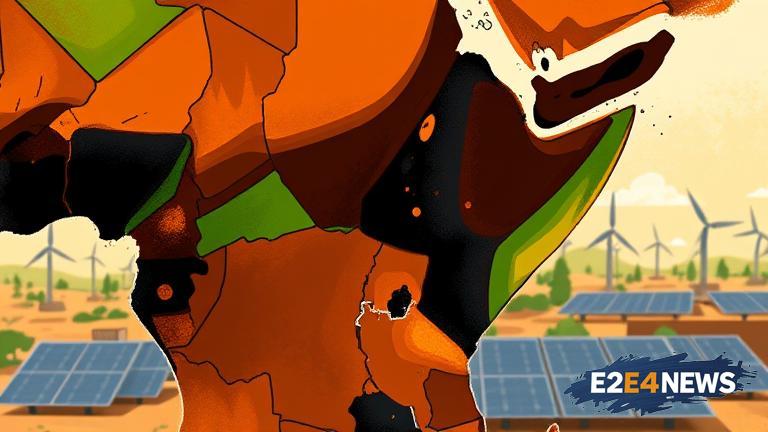The African continent is witnessing a significant shift towards renewable energy, driven by the need to address the pressing issues of energy access, climate change, and sustainable development. With many countries still struggling to provide reliable and affordable electricity to their citizens, renewable energy has emerged as a viable solution. Solar and wind power are leading the charge, with countries like South Africa, Egypt, and Morocco investing heavily in these sectors. The African Renewable Energy Initiative, launched in 2015, aims to achieve at least 300 GW of renewable energy capacity by 2030. This ambitious target is expected to create new economic opportunities, stimulate growth, and improve energy security. Moreover, the adoption of renewable energy can help reduce greenhouse gas emissions, contributing to global efforts to combat climate change. The International Renewable Energy Agency (IRENA) has pledged to support African countries in their transition to a low-carbon economy. Several international organizations, including the World Bank and the African Development Bank, are providing financial and technical assistance to facilitate the development of renewable energy projects. In addition, private sector companies are increasingly investing in African renewable energy, recognizing the vast potential for growth and returns. The renewable energy sector is also creating new job opportunities, both directly and indirectly, contributing to the continent’s economic development. However, despite the progress made, significant challenges remain, including the need for improved infrastructure, enhanced regulatory frameworks, and increased access to financing. To overcome these hurdles, African governments, international organizations, and private sector stakeholders must work together to create an enabling environment for renewable energy development. This includes investing in grid expansion, promoting policy and regulatory reforms, and providing training and capacity-building programs. Furthermore, the integration of renewable energy into the grid requires careful planning and management to ensure a stable and reliable supply of electricity. The use of smart grids, energy storage systems, and other innovative technologies can help address these challenges. As the demand for energy continues to grow, African countries must prioritize renewable energy development to ensure a sustainable and prosperous future. The benefits of renewable energy extend beyond the energy sector, contributing to improved healthcare, education, and economic outcomes. In conclusion, Africa’s renewable energy revolution is gaining momentum, driven by the collective efforts of governments, international organizations, and private sector stakeholders. With continued investment, innovation, and cooperation, the continent can unlock its vast renewable energy potential, driving growth, reducing poverty, and promoting sustainable development. The future of Africa’s energy landscape looks promising, with renewable energy poised to play a leading role in shaping the continent’s economic and environmental trajectory. As the world transitions to a low-carbon economy, Africa is well-positioned to emerge as a leader in the renewable energy sector, leveraging its abundant natural resources to drive growth and prosperity. The African renewable energy market is expected to continue growing, driven by declining technology costs, improving policy and regulatory frameworks, and increasing investment. With the right policies and investments in place, Africa can unlock its full renewable energy potential, creating a brighter future for its citizens and contributing to a more sustainable world.
